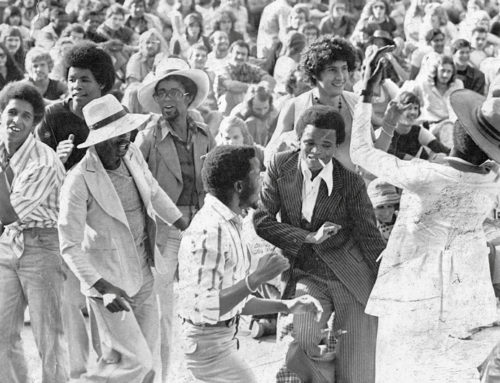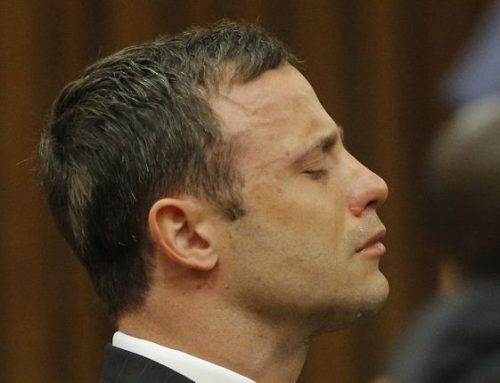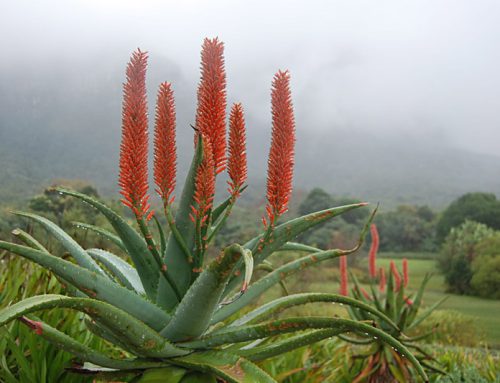 Two years ago Heather Dugmore swapped her life in Sandton for a farm in the mountains of the Karoo, where the cattle low and the only lights she sees at night are the lights of the stars above.
Two years ago Heather Dugmore swapped her life in Sandton for a farm in the mountains of the Karoo, where the cattle low and the only lights she sees at night are the lights of the stars above.
The winters to be so cold
In my old life I lived in an apartment two blocks from Sandton City, where the night sky was a blaze of neon and I had every home comfort on tap. I was cocooned in my apartment every winter, embraced by cosy comforts like Mr Delivery and oil heaters. Now I live on a farm in the Karoo where there is no Mr Delivery and no Eskom. I discuss Agas and solar power with the same enthusiasm that I used to discuss sushi and cinema.
The good old Aga gets stoked up for winter, which keeps the kitchen cosy but the rest of the farmhouse is icy. It’s good for writing because there’s no dozing off at my desk. Winters are serious here: the farm is situated on top of a mountain, with one of the highest peaks in the Eastern Cape – some 2 200 metres – outside the door. It snows several times in winter and the temperature regularly drops below zero, with icy winds compounding the cold.
I know when winter is on its way because the lesser kestrels leave the farm and migrate to Russia. Unable to follow, I grab my sheepskin boots and beanie and don’t remove them for several months. I now understand why some English and European folk have a reputation for not bathing in winter. It is far too traumatic to undress. This is no place for sissies and I am trying not to be one because, even when icicles hang from my nose, I wouldn’t swap the outback for restaurants and malls.
The solitude
As one born and bred in Jo’burg, everyone asks me if I am lonely on the farm, which is really remote. The closest neighbour is 15km away. I am not lonely. I am fortunate to be living here with my love and farming partner, even though I sometimes don’t see him all day. I would not have undertaken such a big adventure without him, so I’m not that brave and having satellite Internet certainly keeps me in touch.
I’ve also always been a bit solitary; writing makes me so. I love the solitude here and I often walk alone in the veld or with our dog and cat.
We know a couple of farmers in the area, younger and older, but the distances are so great that we rarely go visiting because to do so is a day’s event.
I have no idea what our fellow farmers think of me: all I know is that some call me Heidi because we live in the mountains. Our closest town is Middelburg, a farming town with two co-ops, which I regularly frequent, and all the basics I need. The closest Woolworths is 350 kilometres away.
I occasionally pick up gossip in town about who has run off with whom but most of the “husband and wife” farmers I know seem united and settled. Out here men and women depend on each other more because you need to work as a team when you are at the coalface of the elements.
For the single women reading this feature, the Karoo has many bachelor farmers, young and old. And I’m talking about good-looking, highly eligible men. Quite a bit of matchmaking goes on and a lot of sighing when the matchmaking fails. “He’s a confirmed bachelor” is the convenient response.
Of life and death
I had no idea about how close life is to death until I moved to the farm. Out here the cycle of life and death is in full force every day. One moment you have a calf being born, the next moment you have a lamb killed by a caracal or jackal. I have always been pro wildlife but to see a lamb with its leg bitten off and still alive is horrific.
There are plenty of predator-friendly management theories but they don’t always work in the field. I was glad when we sold our sheep to focus on cattle because now when I hear the jackal calling, I can enjoy the call of the wild.
Out here I witnessed sheep being slaughtered for the first time. My only contact with sheep before was when they were neatly packaged in the butchery. No more. Now I have sheep suspended above my kitchen sink to let the blood run out. The Telkom guys happened to arrive one morning after a sheep had been slaughtered. They declined my offer of lunch.
Not so easy
Everything looks so easy when it is on a supermarket shelf or a restaurant plate. Take fresh vegetables: who would believe that growing vegetables is a fine art? I thought you just popped the seed in organically fertilised soil. Not so. It took several takes and more luck than skill to grow some outsize Karoo marrows of which I am excessively proud. I mean excessively because I landed up with wheelbarrows of marrows. I’ve never eaten so many marrows in my life or spent so much time trying to think up inventive ways to cook them. Bear in mind that I’m no cook; cooking for me in the city involved reading the instructions on Woolworths meals.
I recently bought an exquisite Karoo cookbook called Prickly Pears and Pomegranates. I have developed culinary aspirations and imagine turning out a fine game stew (with marrows) one day but I’ve got no further than the photos.
The joy of cattle and horses
I love cattle. I love the smell of them, I love being near them and I love the age-old tradition of stockmanship. What I never imagined was inserting my arm in a cow’s backside, which is how you test if the cow is pregnant. I wore surgical gloves – long ones extending up to the shoulder and was patiently guided by Dr Eddie Snyman, the vet, but it will be a while before I can confidently declare ‘pregnant’ or ‘dry’.




